On the morning of November 29, with 446/448 delegates participating in the vote in favor (accounting for 93.11% of the total number of National Assembly delegates), the National Assembly passed the Law on Geology and Minerals.

On the morning of November 29, under the direction of Vice Chairman of the National Assembly Nguyen Duc Hai, the National Assembly voted to pass the Law on Geology and Minerals.
The electronic voting results showed that 446/448 National Assembly deputies participated in the vote in favor, accounting for 93.11% of the total number of National Assembly deputies. Thus, with a high approval rate, the National Assembly officially passed the Law on Geology and Minerals.
Presenting the Summary Report on the explanation, reception and revision of the draft Law on Geology and Minerals, Chairman of the National Assembly's Committee on Science, Technology and Environment Le Quang Huy said that on November 28, 2024, the National Assembly Standing Committee issued Report No. 1098/BC-UBTVQH15 on the explanation, reception and revision of the draft Law on Geology and Minerals (draft Law).
Regarding mineral classification (Article 6), taking into account the opinions of National Assembly deputies, the draft Law has been reviewed, supplemented, and revised with relevant regulations for this type of mineral in the provisions on State policies (Clause 3, Article 3), exploration of strategic and important minerals (Articles 41, 44, 47), exploitation of strategic and important minerals (Article 65); no auction of mineral exploitation rights for some strategic and important mineral areas (Clause 2, Article 100); the Ministry of Natural Resources and Environment is assigned to submit to the Prime Minister for approval of the list of strategic and important minerals (Point b, Clause 2, Article 107).

Explaining the opinions of delegates on the rights and responsibilities of localities, communities, households and individuals where geological resources and minerals are exploited (Article 8), accepting the opinions of National Assembly delegates, the National Assembly Standing Committee found it necessary to stipulate more clearly on this content. Accordingly, the draft Law has been supplemented with Point d, Clause 1, Article 8 in the direction of stipulating: Based on the situation of mineral activities in the area, the Provincial People's Council decides to promulgate regulations on the responsibility of organizations and individuals exploiting minerals to contribute funds to invest in upgrading, maintaining and constructing technical infrastructure works and environmental protection works in the area.
At the same time, add Clause 3, Article 8 to assign the Government to provide detailed regulations for the Government to prescribe a number of contents such as: principles for determining collection levels, order and procedures for collection and payment to the state budget, management and use of revenue sources to ensure uniform implementation nationwide.
According to the above regulations, the decision on the collection level must be based on the situation and effectiveness of mineral activities in the province. In case the mineral activities in the area are not effective, the Provincial People's Council will proactively decide to adjust this contribution to avoid negative impacts on the local investment environment.
In addition, mineral activities are often not supported by local people due to their undesirable impacts on the living environment and technical infrastructure. Organizations and individuals exploiting minerals have specific contributions (along with state budget expenditures for upgrading, maintaining, and constructing technical infrastructure works, works environmental protection) contributes to creating consensus and support from the people when implementing mineral exploitation projects. Many mineral exploitation enterprises want to have a specific and clear legal corridor to have a basis for implementation.
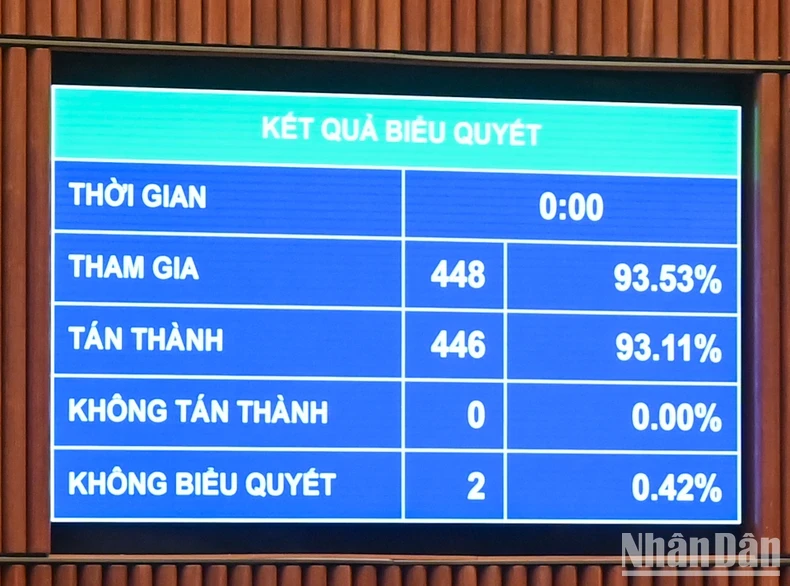
Regarding the planning of Group I minerals, planning of Group II minerals, and management plan for geology and minerals (Article 12), taking into account the opinions of delegates, the draft Law has amended the name of the mineral planning in Clause 1, Article 12 to be Group I minerals planning and Group II minerals planning to ensure brevity and inclusion of relevant contents. At the same time, the planning names in the provisions related to mineral planning in the draft Law have been reviewed and synchronously adjusted. To ensure the consistency of the legal system, the Standing Committee of the National Assembly has directed the adjustment of the name of the mineral planning in the content of amending and supplementing the Law on Planning in the draft Law amending and supplementing a number of articles of the Law on Planning, the Law on Investment, the Law on Investment under the public-private partnership model and the Law on Bidding.
Incorporating the opinions of National Assembly deputies, the revised draft Law does not specifically stipulate the adjustment of mineral planning in this draft Law. The adjustment of provincial planning (including geological and mineral management plans), group I mineral planning, group II mineral planning, and the authority to adjust must comply with the law on planning (Clause 4, Article 12). At the same time, the National Assembly Standing Committee has directed the adjustment of planning adjustment content according to the simplified procedures in the draft Law amending and supplementing a number of articles of the Law on Planning, the Law on Investment, the Law on Investment under the public-private partnership model, and the Law on Bidding.
Regarding the principle of granting mineral exploration licenses (Article 43), taking into account the opinions of delegates, the draft Law has added at Point h, Clause 1: “Each organization or individual is granted no more than 5 exploration licenses for a type of mineral, excluding expired mineral exploration licenses. In case of granting more than 5 licenses to the same organization, the Prime Minister must approve in writing”.
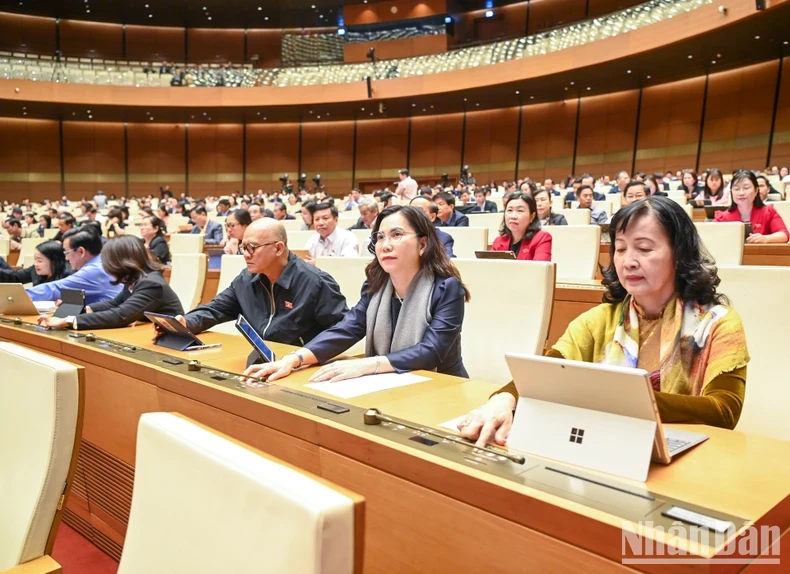
Regarding the mineral exploitation license (Article 56), there is a proposal to adjust the regulation on the licensing period to no more than 50 years and the extension period to no more than 15 years. Regarding this content, the National Assembly Standing Committee reported: Minerals are public assets, the implementation of mineral exploitation investment projects must have a different approach compared to other normal investment projects. The regulation of the term of the mineral exploitation license must ensure convenience for organizations and individuals exploiting minerals, but it is necessary to calculate and minimize negative impacts on socio-economic development.
International experience shows that mineral exploitation licenses are valid for a maximum of 30 years and can be extended for a number of years. This regulation is also consistent with the fact that the life cycle of mineral exploitation technology after 30 years is often outdated and requires investment and innovation.
Point a, Clause 4, Article 56 of the draft Law stipulates that a mineral exploitation license is valid for no more than 30 years and can be extended multiple times, but the total extension period is no more than 20 years, for a total of 50 years, equal to the implementation period of a normal investment project as prescribed by the law on investment. In fact, many projects have completed exploitation and ended the project after 10 years.
In addition, the draft Law stipulates the re-issuance of mineral exploitation licenses in cases where the mineral exploitation license has expired (including the extension period) but there are still reserves. Therefore, the Standing Committee of the National Assembly proposes that the National Assembly allow the retention of the provisions on the term of mineral exploitation licenses as stated in Point a, Clause 4, Article 56, and at the same time, proposes that the Government directs to ensure convenience and ease in license extension procedures.
Chairman of the National Assembly's Committee on Science, Technology and Environment Le Quang Huy said that the National Assembly Standing Committee has directed the review and technical improvement, ensuring the constitutionality, legality and consistency in the legal system, closely following the policy goals, viewpoints and requirements of the Law. After receiving and revising, the draft Law has 12 Chapters, 111 Articles, 79 articles have been revised in content, 05 articles have been removed compared to the draft Law submitted to the National Assembly at the meeting on November 5, 2024. |
Source


![[Photo] Prime Minister Pham Minh Chinh receives Deputy Prime Minister of the Republic of Belarus Anatoly Sivak](https://vstatic.vietnam.vn/vietnam/resource/IMAGE/2025/4/2/79cdb685820a45868602e2fa576977a0)
![[Photo] Special relics at the Vietnam Military History Museum associated with the heroic April 30th](https://vstatic.vietnam.vn/vietnam/resource/IMAGE/2025/4/3/a49d65b17b804e398de42bc2caba8368)

![[Photo] Prime Minister Pham Minh Chinh receives CEO of Standard Chartered Group](https://vstatic.vietnam.vn/vietnam/resource/IMAGE/2025/4/2/125507ba412d4ebfb091fa7ddb936b3b)

![[Photo] Comrade Khamtay Siphandone - a leader who contributed to fostering Vietnam-Laos relations](https://vstatic.vietnam.vn/vietnam/resource/IMAGE/2025/4/3/3d83ed2d26e2426fabd41862661dfff2)
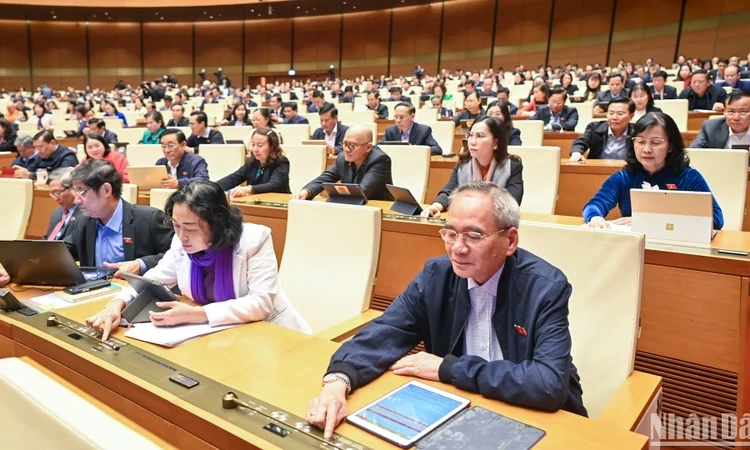
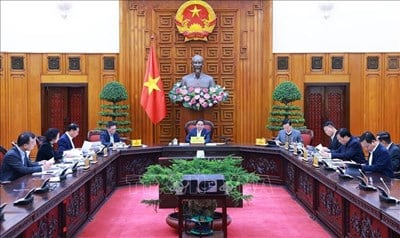
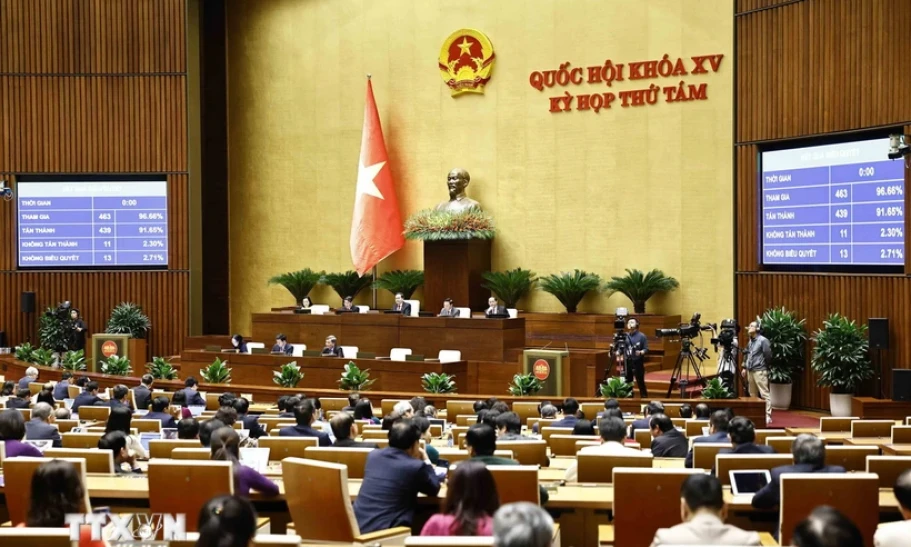
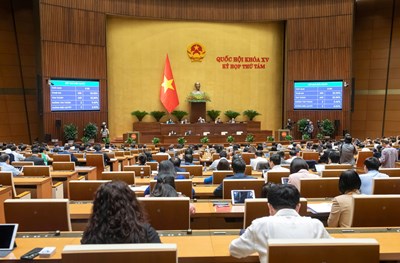
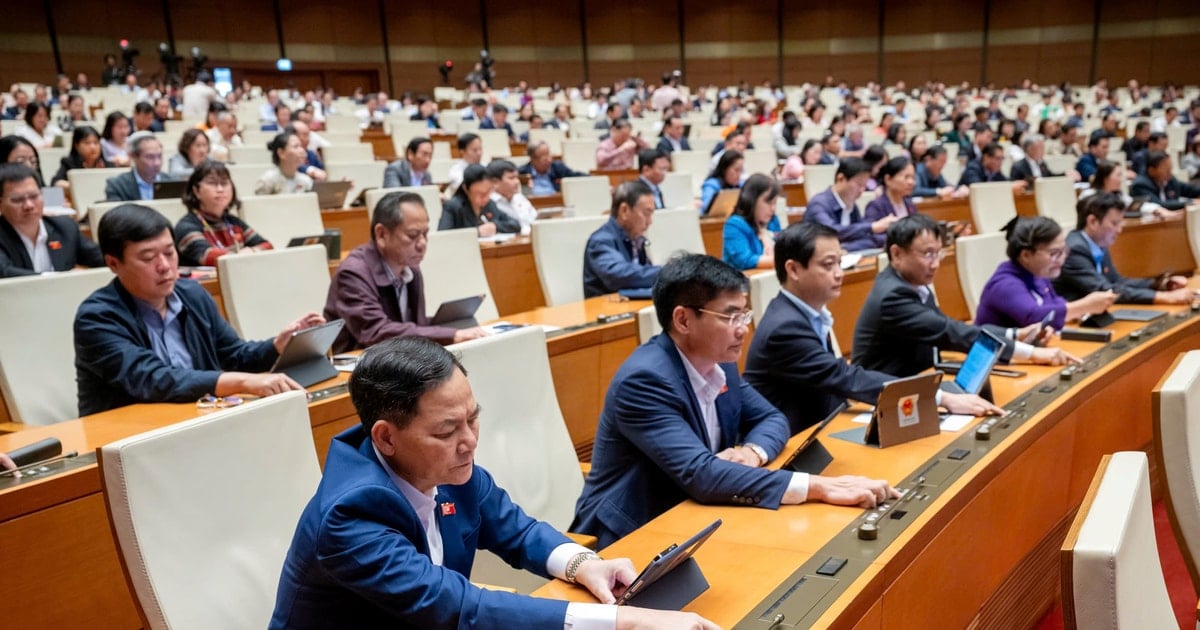
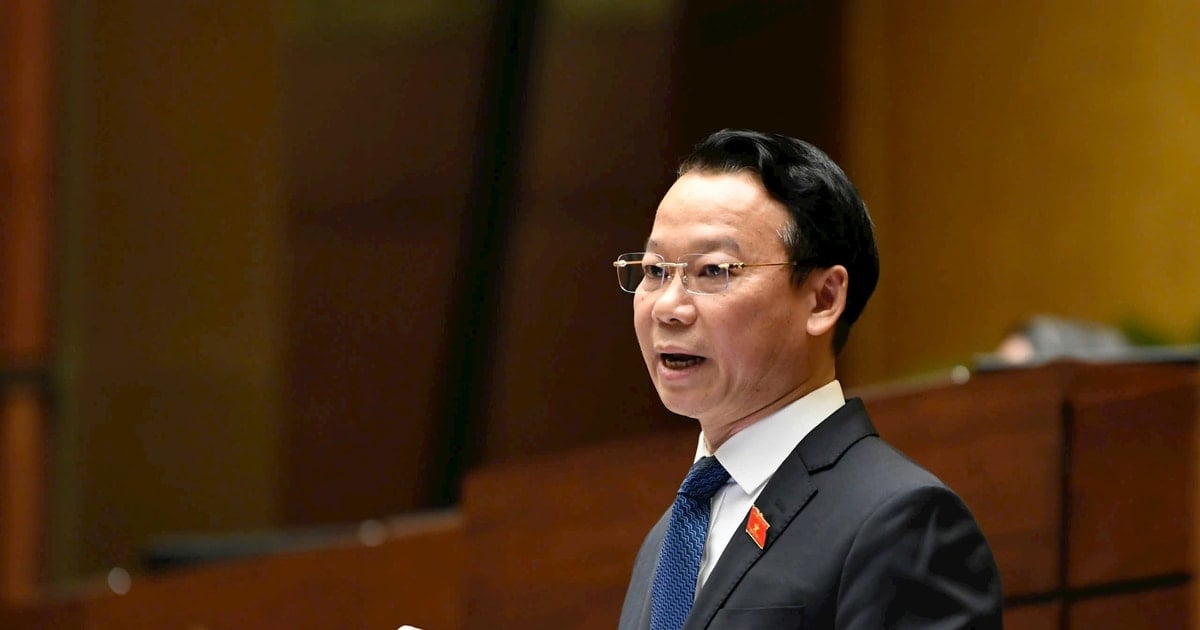

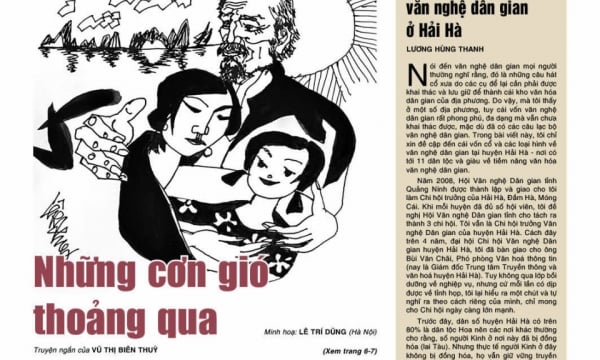
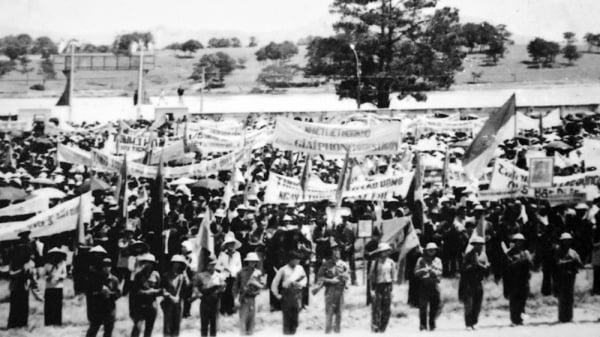









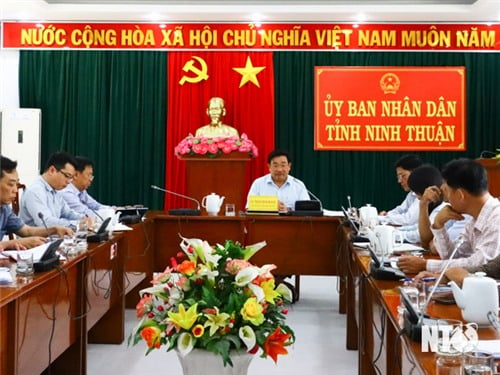
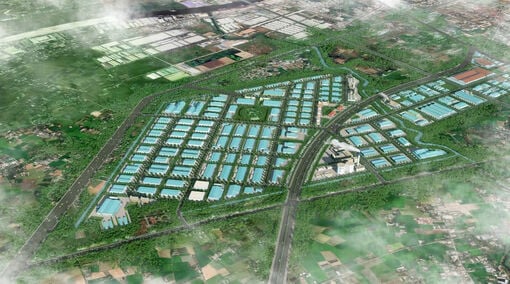

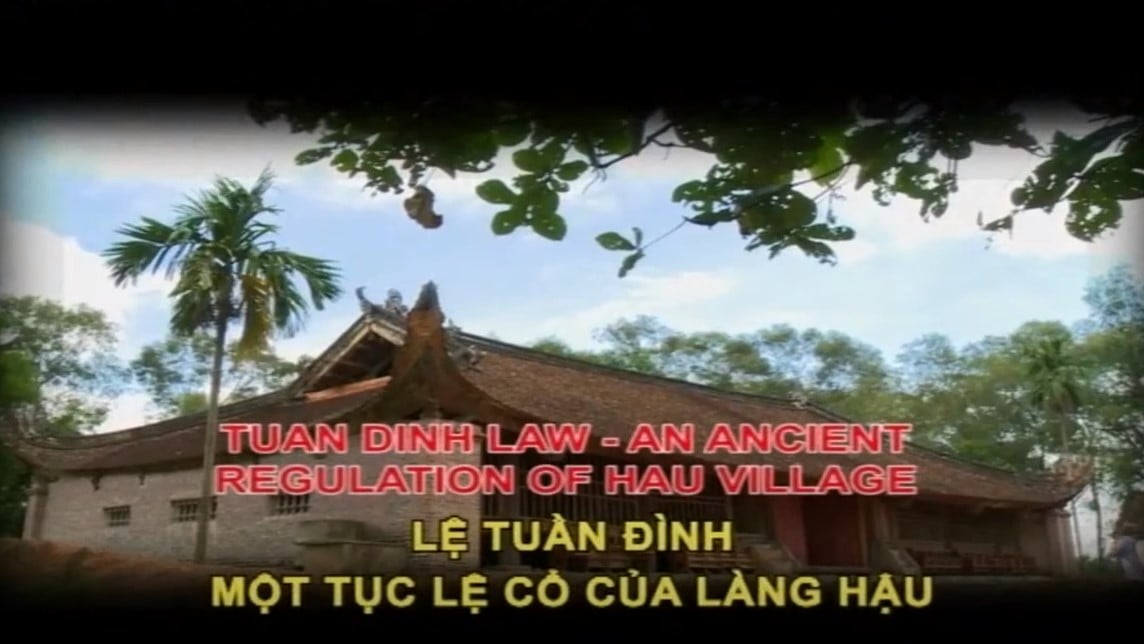






























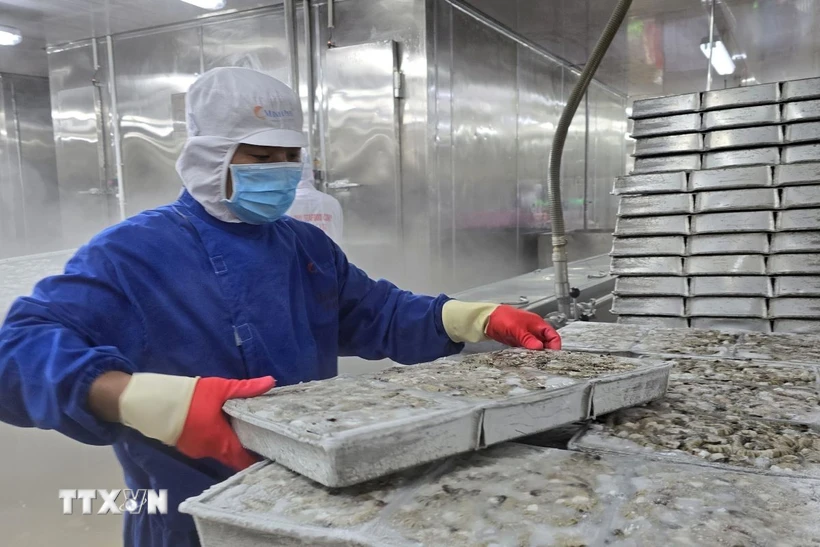

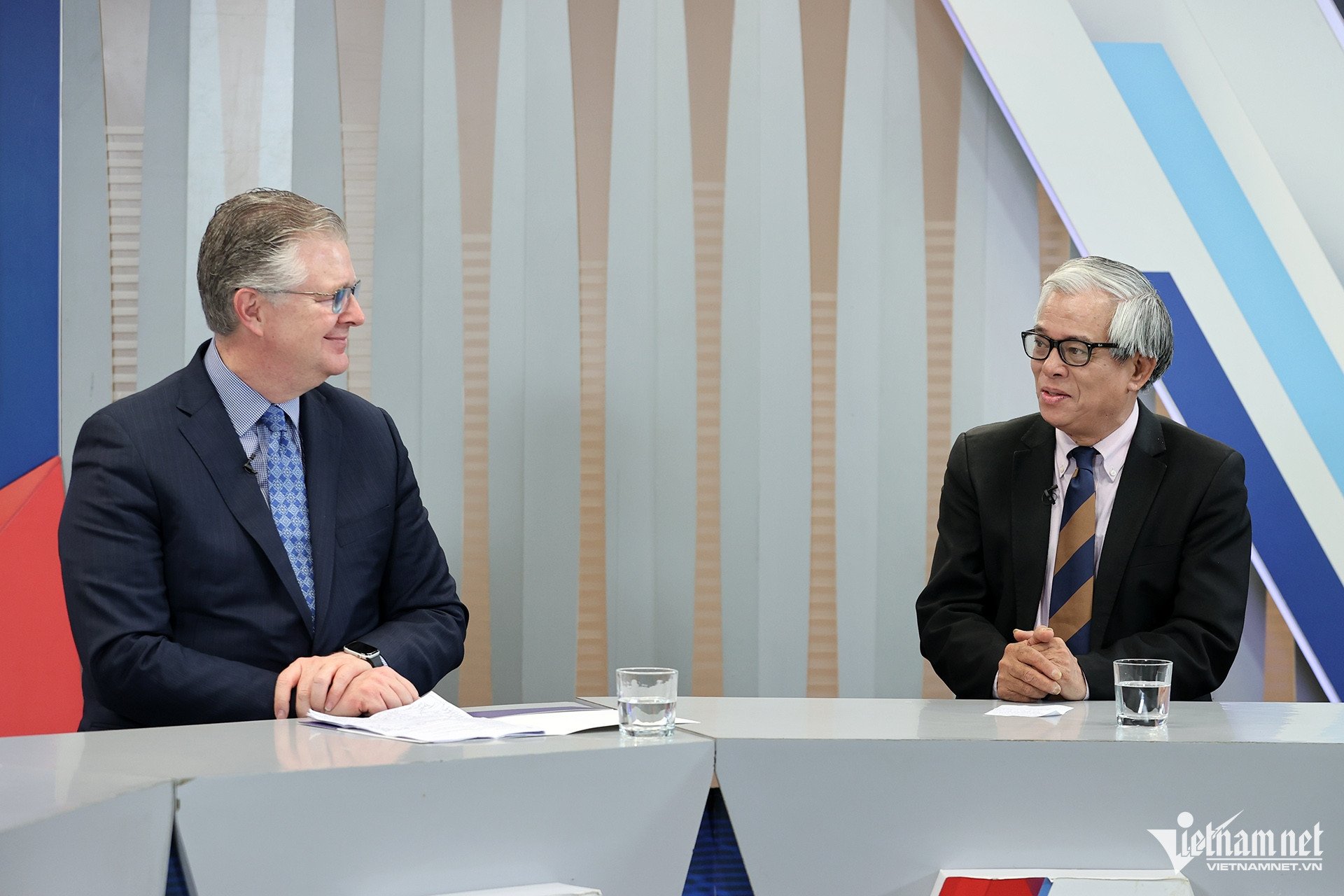


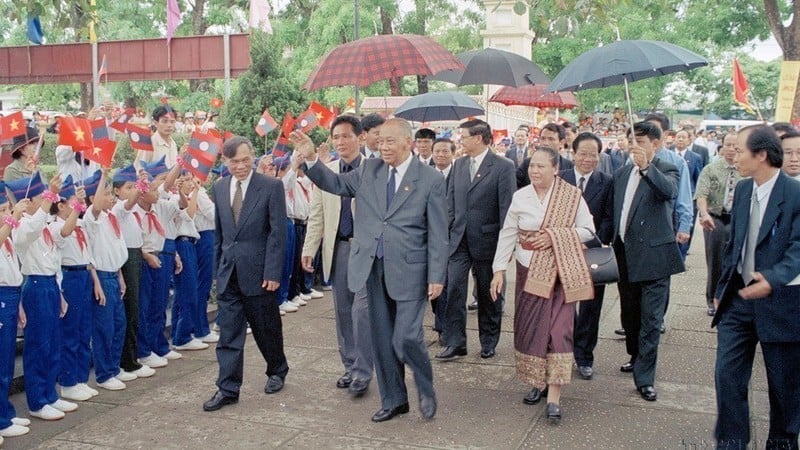


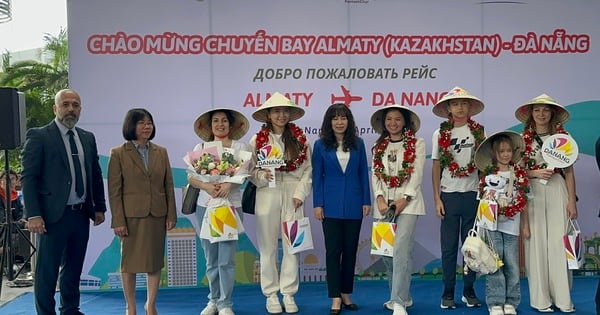








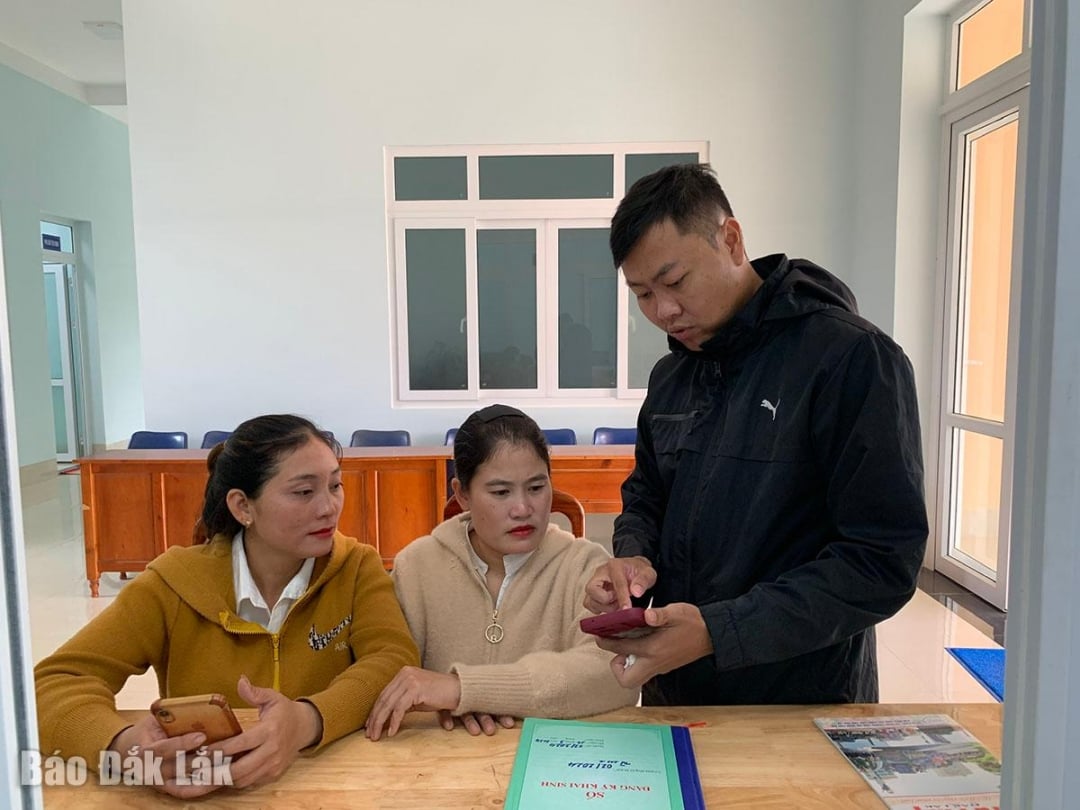















Comment (0)